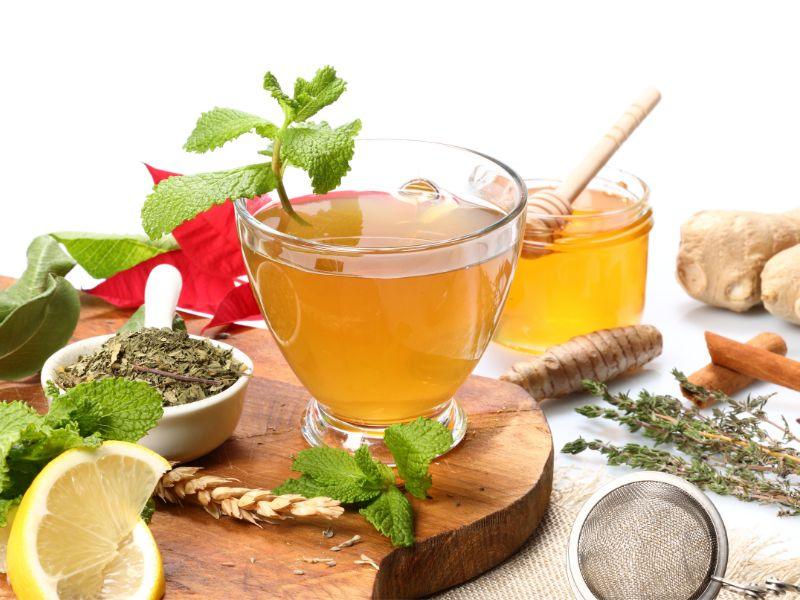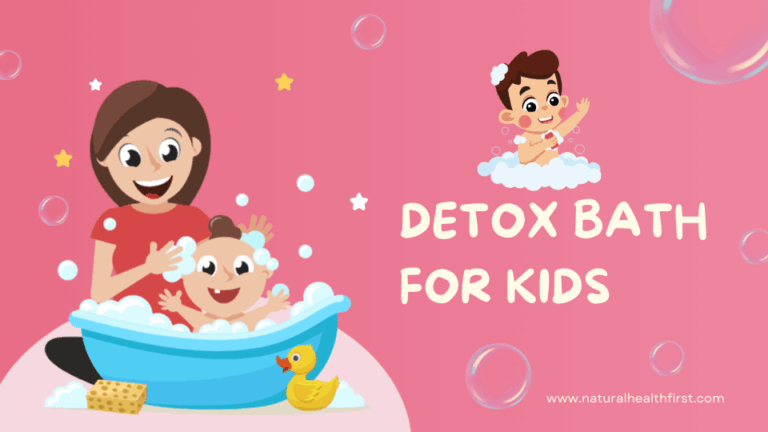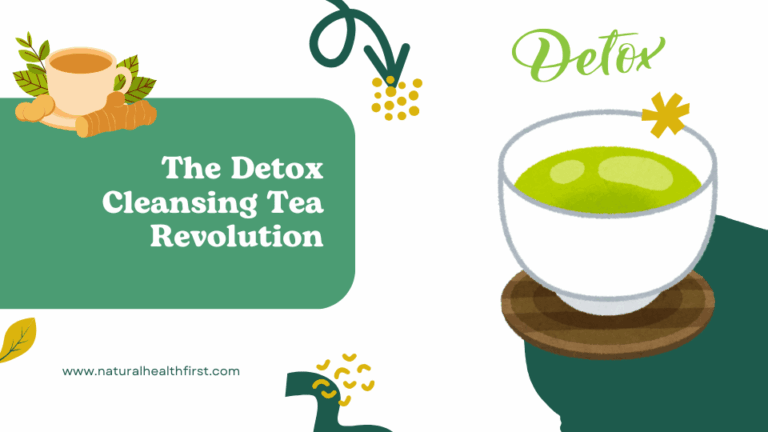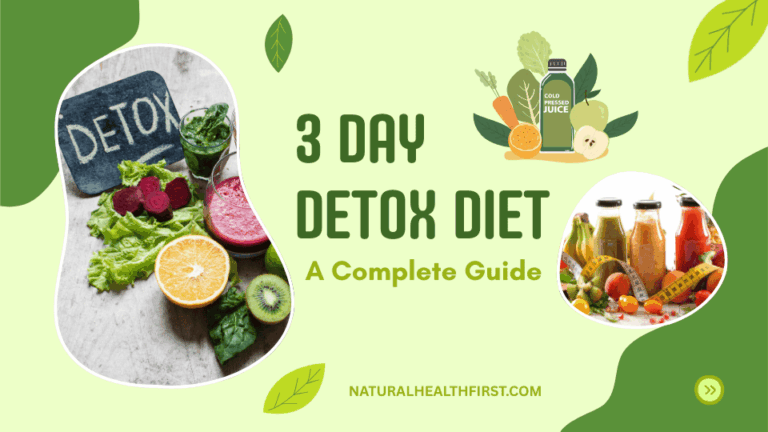Kidney health is essential for maintaining energy, detoxifying the body, and supporting long-term wellbeing. In recent years, kidney detox tea has surged in popularity as a natural supplement to promote gentle cleansing, hydration, and kidney support. But what does science say? How should you use it? And who should be cautious?
This in-depth guide covers everything—benefits, ingredients, recipes, comparisons, and the most important advice for safe and effective use.
Kidney Basics: Why Cleansing Seems Crucial
Your kidneys are the ultimate detox organs, quietly working 24/7 to filter blood, regulate electrolytes, remove waste, and balance body fluids. Kidney disease, infections, and stones are on the rise, pushing more people to seek remedies. While many turn to herbal “kidney detox tea,” understanding what actually supports kidney health—and what’s marketing hype—is essential.
For more evidence-based approaches to whole-body cleansing, explore resources in our detox category.
What Is Kidney Detox Tea?
Kidney detox tea is a blend of herbs, botanicals, and sometimes diuretics marketed to support kidney function, flush toxins, and prevent issues like stones or swelling. Popular ingredients include:
- Green tea
- Dandelion
- Parsley
- Hydrangea root
- Cranberry
- Nettle leaf
- Uva ursi
- Sambong
- Ginger
- Turmeric
Some formulas add senna or cascara for diuretic action, which can rapidly increase urine flow.
The Scientific Truth: Do Kidney Detox Teas Really Work?
Your kidneys naturally filter toxins via blood and urine, relying on hydration and antioxidant support.
Start by understanding these roles:
- Diuretic action – Certain herbs help flush fluids gently.
- Anti-inflammatory properties – Combat oxidative stress and inflammation.
- Improved circulation and flow – Support fluid dynamics for healthy filtration.

Despite the claims, there’s little scientific evidence that any tea or supplement truly “detoxifies” the kidneys. Experts agree: healthy kidneys already clean themselves. Most detox teas work by increasing urination—a diuretic effect—temporarily reducing water retention, not deep cleansing. Overuse, especially of harsh diuretics, can cause dehydration and electrolyte imbalances.
Recent large-scale studies found a reversed J-shaped relationship between moderate tea consumption and acute kidney injury (AKI): up to 3.5 cups per day may be beneficial while excessive intake, especially with excess caffeine or added sweetener, is associated with increased risk.
For gentle, kid-friendly cleansing ideas, see our guide on detox bath for kids.
Kidney-Friendly Herbal Teas and Their Effects
- Green Tea: Antioxidant, may reduce kidney injury at moderate intake
- Dandelion Tea: Supports urine flow, may help mild fluid retention
- Nettle Leaf Tea: Antioxidant, anti-inflammatory, gentle diuretic
- Parsley Tea: Mild diuretic, vitamin-rich, can be used in culinary doses
- Hydrangea/Sambong: Traditionally used for stone prevention in Asian medicine
- Cranberry Tea: May help prevent some urinary tract infections
Important: Always use these herbs in moderation, avoid for chronic kidney disease without medical supervision.
For full-spectrum nutritional support, browse our diet and nutrition category.
Side Effects and Safety Considerations
While mostly safe, caution is necessary:
- Diuretic impact – Risk of dehydration if not balanced with water.
- Electrolyte imbalance – Excess removal of potassium or sodium may occur.
- Limited evidence for “detox” claims – Studies emphasize support, not cure.
- Herb-drug interactions – Particularly for people with kidney disease or on medications.
Making Your Own Kidney Detox Tea
Here’s a simple DIY recipe:
Kidney Detox Blend:
- 1 tsp green tea
- ½ tsp dried dandelion root
- ¼ tsp sambong or hibiscus petals
- Optional: ¼ tsp dried ginger or a chamomile sachet
Preparation:
- Steep in boiling water for 5–10 minutes.
- Strain and serve; add a touch of honey if necessary.
For bolstered cleansing routines, pair with a [3-Day Detox Diet] from the site’s detox page.
Usage Guidelines
- Drink 1–2 cups per day, not substituting water intake.
- Best consumed between meals to support detox without loading digestion.
- Monitor for mild diuretic effects; if present, reduce dose.
- Seek medical advice before use if you have kidney disease or are on medication.
Ginger & Turmeric Kidney Detox Tea Recipe
Ingredients:
- 1 cup hot water
- 1 tsp grated fresh ginger
- ½ tsp ground turmeric (or fresh turmeric)
- 1 tsp honey (optional)
- ½ lemon juice
Instructions:
- Boil water and pour it into a cup.
- Add ginger and turmeric, let it steep for 8–10 minutes.
- Strain and add lemon juice and honey before drinking.
Benefits:
Helps reduce inflammation, supports kidney cleansing, and improves overall digestion.

Parsley & Lemon Kidney Cleanse Tea Recipe
Ingredients:
- 1 handful fresh parsley leaves
- 2 cups water
- ½ lemon juice
- 1 tsp raw honey (optional)
Instructions:
- Boil 2 cups of water and add parsley leaves.
- Let it simmer for 10 minutes.
- Strain and add lemon juice and honey.
Benefits:
Parsley acts as a natural diuretic, helping the kidneys flush out excess sodium and toxins effectively.
Dandelion Root & Green Tea Kidney Flush Recipe
Ingredients:
- 1 tsp dried dandelion root
- 1 tsp green tea leaves (or 1 tea bag)
- 1 cup boiling water
- 1 tsp honey (optional)
Instructions:
- Add dandelion root and green tea into hot water.
- Steep for 7–10 minutes.
- Strain, sweeten with honey, and drink warm.
Benefits:
Supports kidney detox, promotes urine production, and helps balance fluid levels in the body.
Typical Kidney Detox Tea Ingredients – Benefits and Risks
| Ingredient | Benefits | Risks |
|---|---|---|
| Green Tea | Antioxidant, gentle support | High caffeine if overused |
| Dandelion | Diuretic, vitamin A & K | Allergy in some |
| Nettle Leaf | Anti-inflammatory, diuretic | Can affect blood pressure |
| Uva Ursi | Urinary antiseptic | Can be toxic over time |
| Cranberry | UTI prevention | Can exacerbate kidney stones in some |
| Parsley | Diuretic, vitamin C | Avoid large doses in pregnancy |
| Hydrangea root | Traditionally for stones | Limited safety data |
Kidney Detox Tea vs. Other Detox Methods
| Method | Mechanism | Duration | Risks | Scientific Support |
|---|---|---|---|---|
| Kidney Detox Tea | Increased urination | 1-7 days | Dehydration, imbalances | Minimal for “detox” |
| Water Loading | Flushes system | 1-2 days | Low sodium, stress | Not recommended for CKD |
| Juice Cleanses | Vitamins, fluid | 1-7 days | High sugar, imbalances | Not kidney-specific |
| Healthy Diet | Antioxidant support | Ongoing | None | Strongest support |
When Is Kidney Detox Tea Useful?
Sometimes helpful for:
- Reducing mild bloating or water retention after salty meals
- Supporting overall hydration, if unsweetened
- As a replacement for sugar-laden sodas or juices
Not recommended for:
- Managing kidney disease without physician guidance
- Prolonged regular use with strong diuretics
- Those with heart disease, high blood pressure, or pre-existing electrolyte problems
For more on safe herbal cleansing, review the detox cleansing tea revolution.
Data & Trends: Use of Kidney Detox Teas Worldwide
- 44% of adult Americans report trying at least one herbal detox tea in the past year.
- Dandelion and green tea ranks as the most popular kidney-targeted blends.
- Interest surges in January and summer months, aligning with diet and wellness trends.
- Product sales rose 12% year-over-year despite growing expert skepticism about claimed benefits.
Safe Kidney Health Habits
- Drink 6–8 glasses of water daily—stay hydrated without overdoing it.
- Eat antioxidant-rich foods (berries, apples, leafy greens).
- Limit salt, sugar, and processed foods that place stress on kidneys.
- Avoid excessive use of diuretics and high-protein diets unless advised.
- Get kidney function checked regularly, especially if diabetic or hypertensive.
Who Should Avoid Kidney Detox Tea?
- Anyone with chronic kidney disease or on dialysis
- Pregnant or breastfeeding women (parsley, uva ursi, and other herbs can be harmful)
- Children; focus on hydration and real food for them
- Those on multiple medications—herbs can interact unpredictably
Herbs to Watch for in Kidney Detox Teas
| Herb | Potential Issue | Safer Alternatives |
|---|---|---|
| Senna | Harsh laxative, dehydration | Fiber from foods |
| Uva Ursi | Possible toxicity long-term | Short course only |
| Excessive Caffeine | Raises BP, renal stress | Decaf or low-caffeine options |
| Hydrangea | Limited data, allergy risk | Well-known herbs like nettle |
Common Myths Exposed
- “Kidneys need regular cleansing.” False. Healthy kidneys filter and maintain balance every second; “flushing” is unnecessary.
- “Tea can repair kidney disease.” False. No detox tea can reverse kidney damage—medical care and good nutrition are key.
- “More detox tea is better.” False. Excess may cause more harm than help.
For more detox safety tips and family cleansing alternatives, explore detox bath for kids.
Final Thoughts: Kidney Detox Tea – Smart, Safe, or Overhyped?
Kidney detox tea, when chosen for gentle diuretic and wellness support, can offer hydration and antioxidant benefits. However, claims about cleansing, repairing, or boosting kidney function are largely unsupported by science. For most, real kidney health comes from regular hydration, balanced nutrition, moderate herbal use, and professional monitoring.
For long-term renal wellness, combine hydration, antioxidant foods, and periodic check-ups—ditch radical detox products unless specifically advised by your doctor.
Start your personalized detox journey safely with top wellness insights in our detox category and evidence-based nutrition tips at our diet and nutrition portal.
Be kind to your kidneys—they’re detoxing you every minute!
FAQs – Frequently Asked Questions
What is kidney detox tea and how does it work?
Kidney detox tea is a herbal blend made from natural ingredients like dandelion root, nettle leaf, and parsley. These herbs support kidney function by promoting urine flow, reducing toxins, and encouraging natural cleansing. It helps maintain healthy fluid balance in the body while gently supporting overall kidney wellness.
Is kidney detox tea safe to drink every day?
Kidney detox tea is generally safe for most healthy adults when consumed in moderation. Drinking one to two cups daily can help support kidney health, but overuse may cause dehydration or electrolyte imbalance. It’s best to follow serving recommendations and consult a healthcare professional if you have existing kidney conditions or take prescribed medications.
What are the benefits of drinking kidney detox tea?
Kidney detox tea may help flush out excess salts, toxins, and waste products while supporting kidney filtration. It can also reduce bloating, improve hydration, and support urinary tract health. Some herbal blends also provide antioxidants that fight inflammation and improve overall detoxification processes in the body.
Can kidney detox tea prevent kidney stones?
Certain herbs used in kidney detox tea, such as nettle and dandelion, may help reduce the risk of kidney stones by improving urine output and preventing mineral buildup. While it is not a guaranteed prevention method, drinking it alongside proper hydration and a balanced diet can support urinary health and reduce the likelihood of stone formation.
Are there any side effects of kidney detox tea?
Some individuals may experience mild side effects such as frequent urination, dehydration, or stomach upset, depending on the strength of the tea. Overconsumption could strain the kidneys instead of helping them. People with kidney disease, pregnant women, or those on medications should consult a doctor before regular use to avoid complications.
Who should avoid drinking kidney detox tea?
Kidney detox tea may not be suitable for individuals with chronic kidney disease, heart conditions, or those on diuretics or blood pressure medications. Pregnant and breastfeeding women should also avoid it unless approved by a healthcare provider. Always seek professional guidance before starting any detox regimen to ensure safety and effectiveness.








